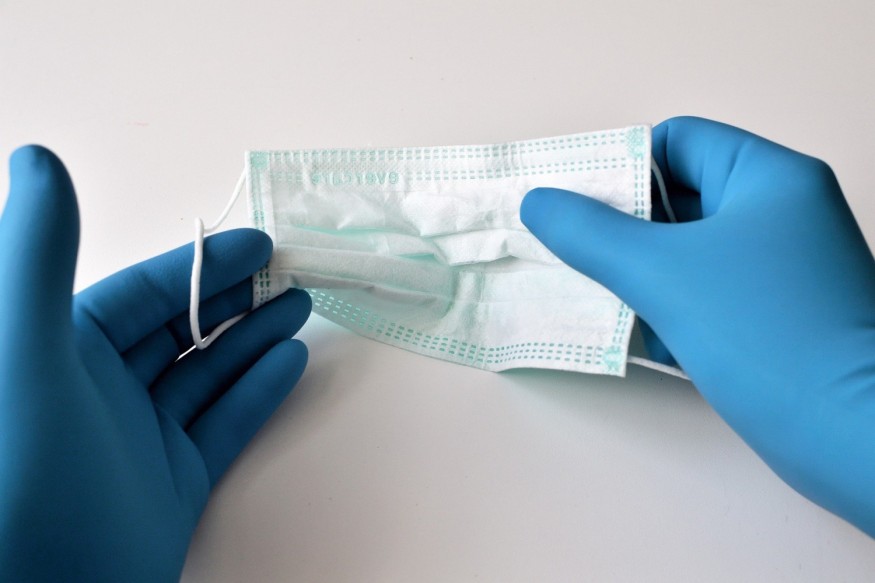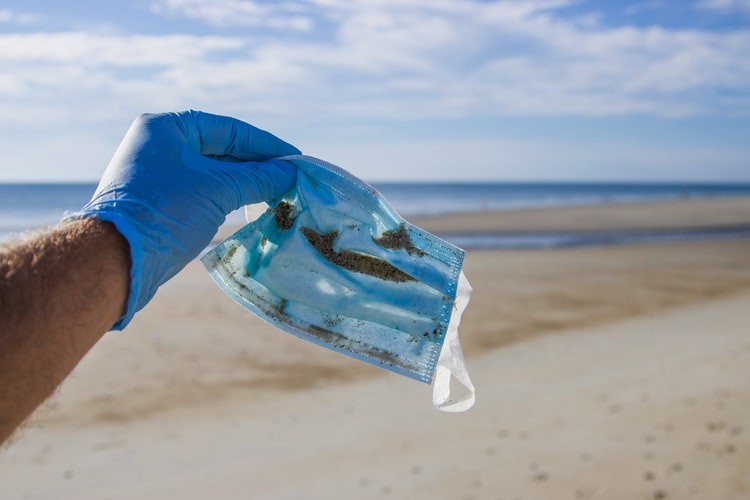A British company has produced the world's first 100 percent compostable three-ply face mask. The eco-friendly masks, made of plant-based ingredients rather than plastic, had the creators invest their life savings in the project.
Not only can the masks help minimize the tremendous carbon footprint produced by plastic masks manufactured in the Far East, they add, but they will make millions of tons of organic fertilizer this summer to help gardens grow.
Mr. Hammond, the managing director of Henosis, their Leeds-based company, said: "We are incredibly proud to have created an eco-friendly face mask that can not only help save lives but also help our planet." In brown bins or backyard composters, they can be disposed of and take 12 weeks to break down.
26 million three-ply masks are used every week by the NHS (National Health Service), while millions more are worn by the public.
But it will take up to 400 years for microplastics to melt down until discarded.
Since they are fully toxin-free, the compostable masks are often known to be safer than biodegradables.
The business specialized in precision printing for the hospitality industry was pre-pandemic, but it was desperately important to diversify with that field.
As demand grows, the company now plans to raise its current five-person workforce to 60.
Mr. Hammond added: "It's about offering a choice to clients." Their price is equivalent to the plastic you purchase on the high street, but there is a small premium to pay, much as organic food.
Save the world is something for which customers feel incredibly strongly. These masks play an essential part in the environmental security of the environment.
Related Article: Seafood's Secret Ingredient: Microplastic
Face Mask

The face mask industry has seen a sudden boom after the declaration of the recent global pandemic. Healthcare providers, and some governmental institutions, are encouraging, if not requiring, everyone to wear one. This is to prevent the spread of the virus.
According to the WHO (World Health Organization), the promotion of wearing face masks is part of the initiative to suppress the transmission of the virus and save lives. However, they were quick to clarify that masks alone are not enough to completely protect someone against all kinds of disease-carrying viruses, including Covid-19.
Despite being a necessary measure for health preservation purposes, the sudden spike in face mask usage came at a terrible cost for the environment.
Face Mask Pollution

A variety of unforeseen environmental effects, curtailing recycling and increasing the worldwide use of plastic. As single-use personal protective equipment (PPE) floods our ocean, Coronavirus waste has become a new source of oceanic pollutants.
Millions of gloves and goggles are used and tossed away every day - only in UK healthcare environments. So it's not hard to see that conservationists are sounding the alarm around the world where all these single-use items end up.
On our seabeds and washing up on our beaches, waterlogged caps, gloves, hand sanitizer tubes, and other coronavirus waste are still being discovered, joining the day-to-day detritus of our ocean habitats.
These PPEs are made of microplastics that are a problem because of how long they take to decay and because they contaminate the things exposed to them. The creation of a greener substitute is an excellent step towards maintaining health safety while keeping the environment clean.
ALSO READ: 'What can be Found in the Ocean': Pink Undies, Double Mattress, Christmas Tree and More
© 2025 NatureWorldNews.com All rights reserved. Do not reproduce without permission.





